I know so many of you love watching Korean series, reading manhwa or listening to K-Pop, and like me you get eager to know more. Learning a new language can be hard, but luckily there are methods we can use to make it a whole lot easier – like the app and flash cards from Dr. Moku.
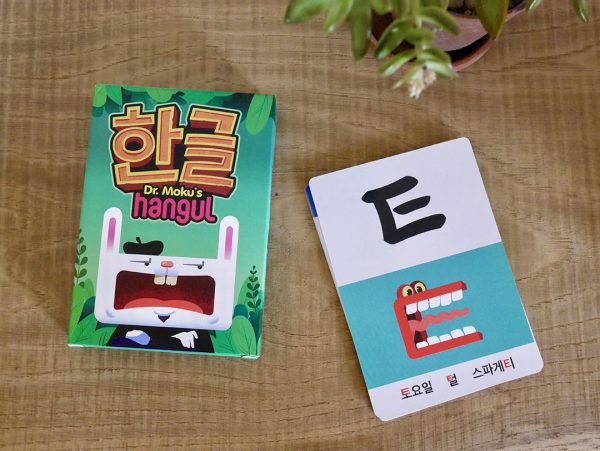
Dr. Moku uses visual and verbal mnemonics to assist in remembering each sound in Korean Hangul and I was lucky enough to be sent their Hangul flashcards to get me started on my learning journey, alongside the full Learn Languages with Dr. Moku app (you get a free upgrade to the full app when you purchase the flashcards).
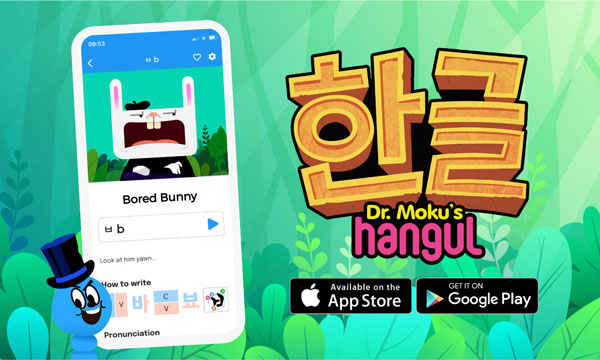
Like the Japanese flashcards that Marceline reviewed, the Hangul cards are also double sided, colourful, and full of useful information. One side of each card has a written character (for the specific sound), a picture mnemonic and a few example words, and the other side contains a guide on the pronunciation, including a little story to help you remember the associated picture. I love that the cards are so easy to follow, plus they’re colour coordinated depending on the type of sound, so you can easily find the one you’re looking for.
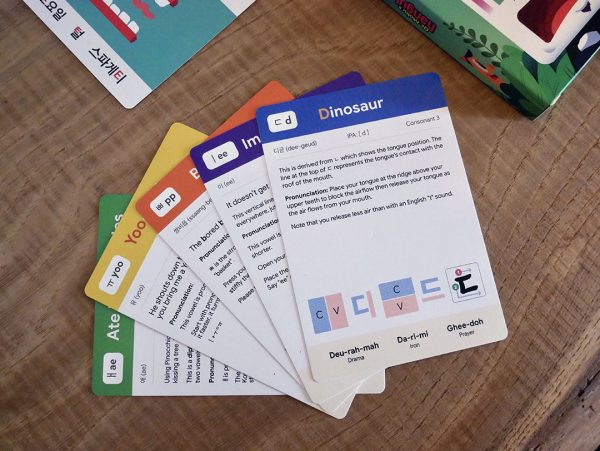
My only difficulty with the pronunciation guide is that it relies on you having an American accent. This is slightly problematic with the vowel sounds, as in the UK and other countries our associated vowel sounds are different. However, this is where the app comes in extremely useful, as you can listen to each sound as spoken by a native Korean speaker. I would definitely recommend making notes on any card that doesn’t quite fit your native pronunciation.
The ‘learning’ section of the app makes it super easy to learn in bitesize chunks and it uses the same information as is written on the flashcards. However, the visual mnemonics are sometimes animated, which might help you to remember those sounds even more. A huge bonus for me was having the audio version of the example words on the flashcards, so that I could actually hear the sounds being used within the words.
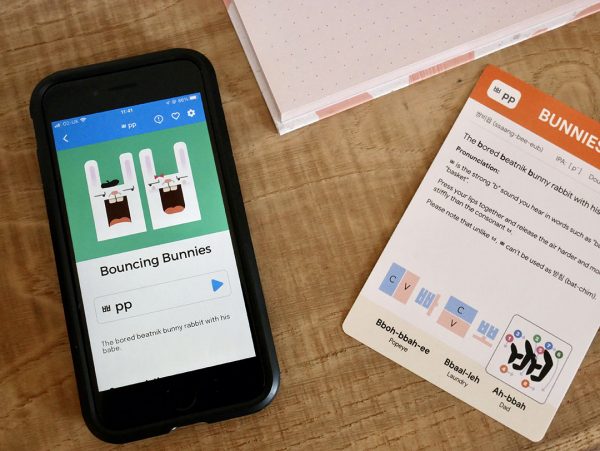
There’s also further practice available for either reading or listening. I only wish there had been a variety of different practice tests available, instead of repeating the same questions every time. When Andi reviewed the previous Japanese app a few years ago, there seemed to be word searches and writing practice too, but this doesn’t seem to be the case anymore. However, with the full app, you’ll also have access to the Korean phrasebook to see the Hangul you’ve learned in useful phrases. I went straight for the food section of course! This is a fabulous addition and I’m glad they have this as an easy reference tool.
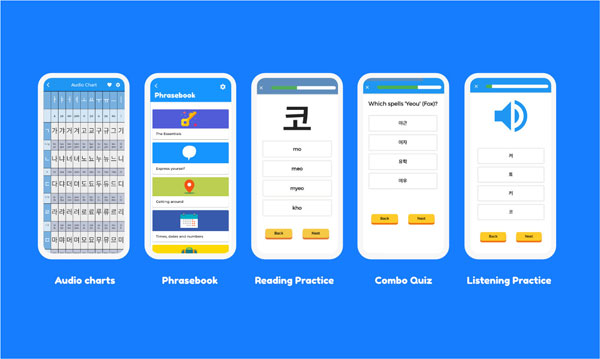
I’m such a huge fan of mnemonic learning and I even found coming back to the tests after a week away from them, I was still getting ~19/20 thanks to the silly stories and visuals. The cards are super easy to use and refer back to, but the app is indispensable when it comes to learning the sounds themselves. Listening to the native speakers really helped me to understand the vowel sounds and diphthongs.
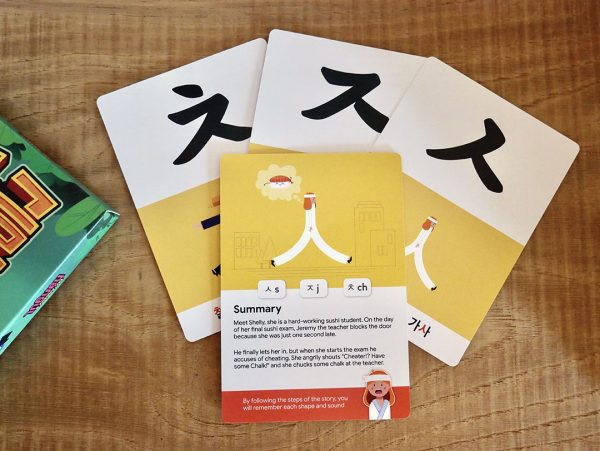
If you’re planning to head to South Korea in the future or if you have language learning as one of your resolutions for 2022 then the cards and app are an amazing place to start. I feel like I learned a lot of information in quite a short space of time.
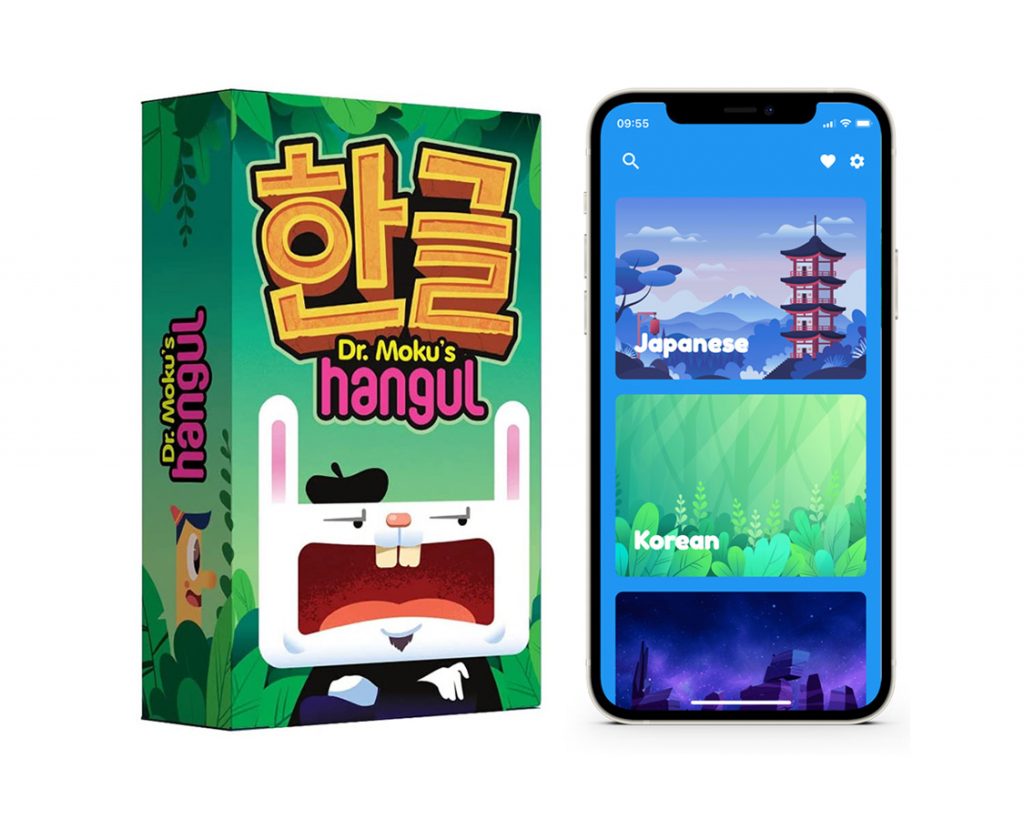
Try the Dr. Moku app & flash cards
You can download the free Learn Languages with Dr. Moku app from your Apple or Android phone/tablet or buy the flash cards from Amazon (UK/US), which also include an upgrade code for the full app.
(Products were provided by Dr. Moku for review but all words, photographs and opinions are my own)
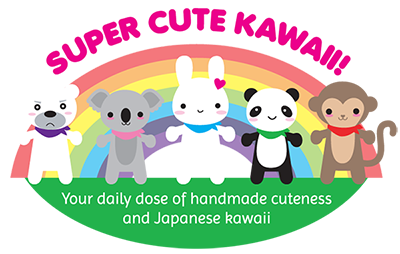


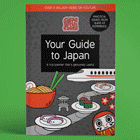
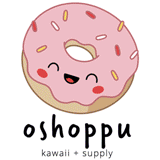
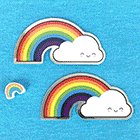




Leave a Reply